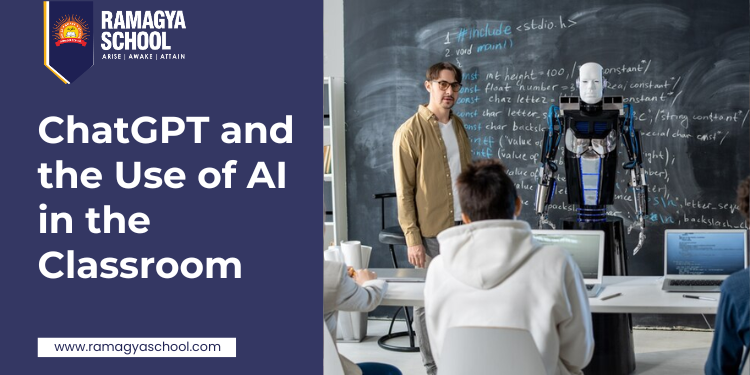Artificial Intelligence (AI) has rapidly transformed various aspects of our lives, and education is no exception. With the advent of innovative AI technologies like ChatGPT, the traditional classroom experience is undergoing a profound evolution. Today, we’ll explore the significance of ChatGPT and how it is revolutionizing education by enhancing learning outcomes, fostering creativity, and personalizing the learning experience for students.
The Power of ChatGPT:
ChatGPT, based on OpenAI’s GPT (Generative Pre-trained Transformer) architecture, is an advanced natural language processing model capable of generating human-like text based on the input it receives. This powerful AI tool has found myriad applications in education, particularly in the classroom setting.
Enhancing Learning Outcomes:
One of the key advantages of integrating ChatGPT into the classroom is its ability to provide personalized learning experiences for students. By analyzing students’ responses and engagement patterns, ChatGPT can tailor educational content to suit individual learning styles and preferences. This customization fosters deeper understanding and retention of concepts, ultimately leading to improved learning outcomes.
Fostering Creativity:
ChatGPT’s natural language generation capabilities empower students to express their ideas and thoughts in creative ways. Through interactive dialogue with ChatGPT, students can explore complex concepts, brainstorm solutions to problems, and engage in imaginative storytelling exercises. This fosters creativity, critical thinking, and communication skills, essential attributes for success in the 21st century.
Facilitating Collaborative Learning:
In addition to its role in personalized learning, ChatGPT serves as a valuable collaborative learning tool. Through group discussions and debates facilitated by ChatGPT, students can exchange ideas, challenge assumptions, and collectively explore diverse perspectives on various topics. This collaborative approach cultivates teamwork, empathy, and social-emotional skills, preparing students for success in a collaborative work environment.
Empowering Educators:
ChatGPT also empowers educators by automating routine tasks, such as generating quizzes, providing feedback on student assignments, and answering commonly asked questions. Such things free up valuable time for teachers to focus on more meaningful interactions with students, such as facilitating discussions, providing individualized support, and mentoring.
Overcoming Challenges:
While ChatGPT offers numerous benefits, it is essential to acknowledge and address potential challenges, such as data privacy concerns, ethical considerations, and the need for digital literacy training for both students and educators. By implementing robust safeguards and promoting responsible AI usage, these challenges can be effectively mitigated, ensuring a safe and ethical learning environment for all.
Looking Ahead:
As AI technologies continue to advance, the potential for ChatGPT and similar tools to transform education is virtually limitless. By harnessing the power of AI in the classroom, we can unlock new opportunities for innovation, equity, and excellence in education. Together, let’s embrace the transformative potential of ChatGPT and shape a future where every student has the opportunity to thrive and succeed.
“Embracing AI in the classroom isn’t just about enhancing technology; it’s about empowering educators and students to embark on a journey of innovation, curiosity, and lifelong learning.”
In conclusion, the integration of ChatGPT and AI technologies into the classroom setting represents a monumental leap forward in education, ushering in a new era of personalized, interactive, and transformative learning experiences. As we reflect on the myriad benefits and opportunities afforded by ChatGPT, it becomes increasingly evident that its potential to revolutionize education is boundless.
First and foremost, ChatGPT has the power to enhance learning outcomes by providing personalized and adaptive learning experiences tailored to the unique needs and preferences of each student. By analyzing student responses and engagement patterns, ChatGPT can dynamically adjust instructional content, pacing, and delivery methods to optimize comprehension, retention, and mastery of concepts. This personalized approach not only accommodates diverse learning styles but also empowers students to take ownership of their learning journey, fostering a sense of autonomy, motivation, and self-efficacy.Furthermore, ChatGPT catalyzes fostering creativity and critical thinking skills among students. Through interactive dialogue and creative writing exercises facilitated by ChatGPT, students are encouraged to explore, experiment, and express their ideas in innovative and imaginative ways. It not only stimulates intellectual curiosity and innovation but also nurtures essential skills such as problem-solving, communication, and adaptability, which are increasingly valued in today’s rapidly evolving world.
Moreover, ChatGPT promotes collaborative learning environments where students can engage in meaningful discussions, debates, and group projects facilitated by AI-driven interactions. By leveraging ChatGPT as a collaborative learning tool, educators can cultivate teamwork, empathy, and social-emotional skills, essential competencies for success in the digital age. Additionally, ChatGPT empowers educators by automating routine tasks, providing valuable insights and feedback, and optimizing instructional workflows, thereby freeing up time and resources to focus on high-impact teaching strategies and individualized student support.
As we look to the future, we must continue to embrace the transformative potential of ChatGPT and AI technologies in education while remaining vigilant in addressing ethical considerations, data privacy concerns, and digital literacy challenges. By fostering a culture of responsible AI usage, promoting equity and inclusivity, and prioritizing student well-being and learning outcomes, we can harness the full potential of ChatGPT to create enriching, empowering, and equitable learning environments for all.
In essence, ChatGPT represents not just a technological innovation but a paradigm shift in education—one that holds the promise of empowering students, educators, and communities to thrive in an increasingly complex and interconnected world.
Together, let us embrace the transformative potential of ChatGPT and pave the way for a future where education is truly personalized, engaging, and empowering for all.
“Education is the passport to the future, for tomorrow belongs to those who prepare for it today.” – Malcolm X





